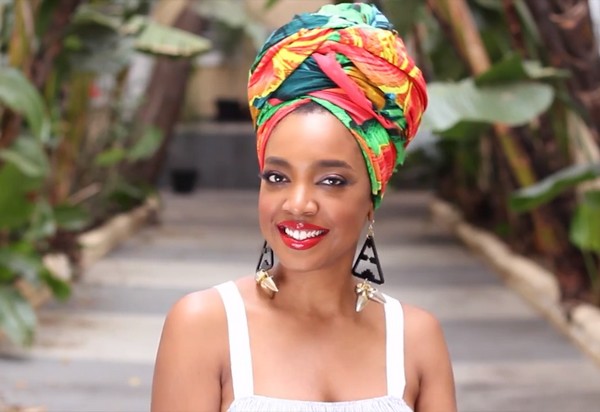The head wraps are the piece of fabrics that cover the hair, and you can apply a knot on the back of the head. Head wraps have been a fashion trend and sub-Saharan African culture in the lives of African women for centuries.

Today head wraps vary in shape and styles and come in various colors, styles, and prints. Head wraps are trending around the world as a symbol of fashion.
The African head wraps are not just a fashion trend; the history of head wraps holds a distinguishing place in African attires’ history.
Although we cannot identify the importance of head wraps in today’s world, if we go back to pre-clinical African history, we will know that the head wraps were more than just a piece of fabric to cover the hairs. They were a symbol of marriage, status, and family ancestry.
Head wraps are something that black women choose and love to wear. They have a brief history and story about existence, which reveals how they evolved. Let’s dive deep to have a look at that
History of African Head Wraps
Head wraps have been a part of African culture for countless generations. African women’s head wraps have many practical and fashionable uses. They can be used to cover the head to protect it from the hard sun and protect hair styling.
But head wraps were not just a mark of black women’s fashion. They were also a symbol of wealth, marital status, mourning, and ethnicity depending upon the type of head wrap and the way it is being worn. All colors and patterns of head wrap present a different story; they have spiritual significance.
Head wraps have many cultural, spiritual, and moral meanings.
Spiritually
Spiritually African women adopted head coverings as part of their religion. From Hiab in Islamic tradition to the white lace covering in the Catholic Church, black women have believed that the covering of the head is the part of faith and belief. Some black women also wear white fabric from head to toe and wear headscarves as a religious value.
Culturally
African women’s head wraps were also a symbol of slavery. They were worn by slave men for the protection of the scalp during hot summer days while working in the field. Black women were forced to wear them to mark them as slave women.
The head wraps also became a symbol of inferiority for women, house slaves and field slaves alike. They were also used to passcodes from one slave to another depending upon the way they are wearing them.
In Days of slavery, black women had laws that restricted black women to present themselves as desirable. The law restricted the extravagance of how they can dress and express themselves. In those days’ women used to cover their heads as a sign of slavery. After being freed, head wraps were worn by black women to show poverty and piousness.
The tradition of head wraps is still thriving as a symbol of resistance. Head wraps are a valid act of self-care.
Modern Day
In the modern world, no one is forced or restricted in any way. Black women wear what they desire to express themselves.
Although in some area’s women of color have faced pervasive aggressions of while people. In 2019 rule was passed in the state of Californian, according to which it is illegal to discriminate against anyone in the workplace, job sector, or school-based on natural hair or color.
Head wraps have evolved significantly and they represent immense cultural values. In Yoruba tradition, head wraps indicate if a woman is married or single.
Head wraps are worn during festivals, functions, celebrations, and other occasions. The traditional celebration is an amazing way to witness the artistic beauty of African women’s head wraps in full display.
Head wraps are also part of fashion magazines, and fashion designers use head wraps to enhance the dress’s beauty. They are tied and paired with tribal earrings and diverse African print outfits.
Practically and Functionally
Many women choose head wraps as a versatile and functional accessory of all time. In today’s world, women wear them for multiple reasons, including
- Dealing with hair loss issues and hair problems due to health challenges like cancer, chemotherapy, or skin allergy.
- Protection of scalp and hair from harsh weather, sun rays, and climate
- To keep hair away from the face while working out doing house chores or other things
- Not in the mood to style the hairs and just cover them, so no one notices
- Keeping a protective hairstyle
- Protection of hairs while sleeping
- Just as fashion or trend
Head wraps have come a long way; no matter where you travel, Africa, U.S, South America, or other countries, you can see females wearing head wraps as part of fashion. Head wraps are still an important part of black culture, but they have also made their way into different cultures around the globe.
